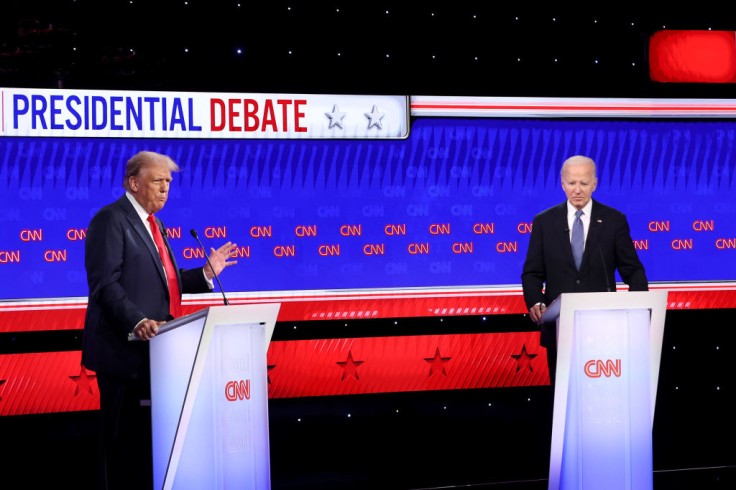The first 2024 US Presidential Elections debate between President Joe Biden and former POTUS Donald Trump has concluded and it has left many people more confused and disappointed.
Aside from the questionable points raised throughout the debate, the event also witnessed the rise of conspiracy theories online intended to defame each candidate.

How did the online disinformation have made its way into one of the biggest election events?
Fear Mongering Through AI
The rise and impact of generative AI can be clearly seen in the recent changes in how disinformation and conspiracy theories are packaged online.
As Global Network has noted, the technology has become closely linked to propaganda movements as a way to instill fear in people through made-up scenarios and supposed bad ends touted by its influential figures.
Even Trump himself once became entangled in this mess as AI-generated pictures of him smiling with Black American voters as supposed proof of people's support towards the Republican candidate over Biden.
Rise of 'Dark Brandon' Memes
Of course, the same trend can be seen in online discussions surrounding Biden's new campaign methods on social media.
Far from his public image during his first election campaign, Biden has leaned towards the "Dark Brandon" memes to appeal to the younger generation, as seen with his campaign's first posts on TikTok.
@bidenhq lol hey guys ♬ Fox nfl theme - Notrandompostsguy
The president was even spotted holding a "Dark Brandon" can containing the "secret sauce" before his appearance on the CNN US Presidential Elections debate.
Rebranded from the original 4chan memes, the "Dark Brandon" posts still carry the irony and absurdism to conflate the president's actions on political issues.
A Vox article greatly captures the issues with this new wave of campaign-led memes on promoting "the actual harmful stuff it was (sometimes literally) adjacent to."
Confusing Social Media Policies
At the root of it all, the varying and often vague social media policies, not only allow but further power these conspiracy theories and disinformation into voters' timelines.
One notable example was the return of 2020 Elections denialism ads on Facebook and Instagram due to a loophole in Meta's policy only prohibiting ads denying "the legitimacy of an upcoming or ongoing election."
The rise of conspiracy theories on the 2020 Elections result is among the driving causes for the Jan. 6 Capitol Riot, of which Trump was charged to be among its primary instigators.
It did not help that its parent company Meta recently shut down the platform's built-in analytics tool for journalists often use for fact-checking.
The same can be seen on X (formerly Twitter) as conspiracy theories have started flooding ad feeds after multiple major brands left the platform's advertising service amid problems in antisemitism and hate speech.









